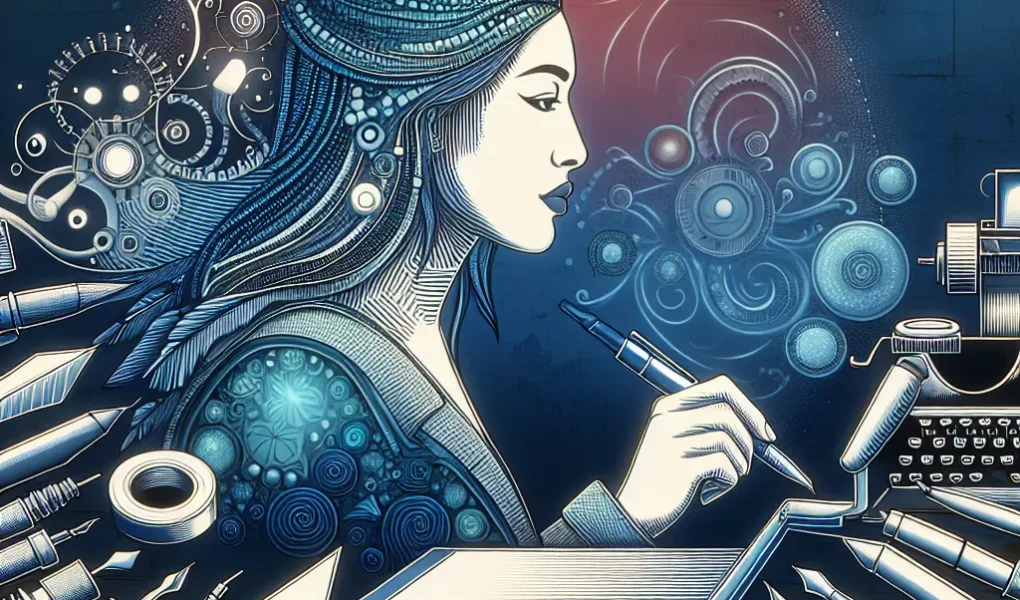The Evolution of Writing Tools
Technology has significantly transformed the writing process, revolutionizing the way writers create and structure their work. One of the most notable changes has been the evolution of writing tools. In the past, writers relied on typewriters, pen and paper, or even a printing press to produce their work. However, with the advent of computers and word processing software, the writing process has become more efficient and dynamic.
Word processing software allows writers to easily edit, format, and rearrange their work, providing a level of flexibility that was previously unattainable. The introduction of spelling and grammar checkers has also streamlined the editing process, enabling writers to catch errors more effectively. Additionally, the ability to store and organize vast amounts of information on digital devices has made research and reference easier than ever before.
Moreover, the internet has opened up a world of opportunities for writers. Online platforms and writing tools, such as blogging platforms, collaborative writing software, and digital content creation tools, have empowered writers to reach a global audience and collaborate with others more seamlessly. Social media and self-publishing platforms have also provided writers with new avenues to share their work and gain recognition.
Overall, the evolution of writing tools driven by technology has not only enhanced the writing process but has also expanded the possibilities for writers to connect with their audience and explore new creative avenues.
Digital Accessibility and Writing
Technology has significantly impacted modern writing processes, especially in terms of digital accessibility. With the rapid advancement of technology, writers now have access to a wide range of digital tools and platforms that have revolutionized the way they create and share their work.
Digital accessibility plays a crucial role in modern writing processes, as it ensures that content is available to all individuals, including those with disabilities. Writers now have the ability to create content in various formats, such as audio, video, and interactive media, making their work more accessible to a diverse audience.
Furthermore, the use of assistive technologies, such as screen readers and speech recognition software, has opened up new opportunities for writers to effectively communicate their ideas. These tools not only enhance the writing experience for individuals with disabilities but also contribute to the overall inclusivity of digital content.
In addition to accessibility, technology has also transformed the editing and collaboration processes for writers. Cloud-based platforms and digital editing tools enable real-time collaboration and seamless communication among writers and editors, regardless of their geographical locations.
Overall, the impact of technology on modern writing processes, particularly in terms of digital accessibility, has paved the way for a more inclusive and collaborative writing environment.
Collaborative Writing in the Digital Age
Collaborative writing in the digital age has transformed the way modern writers work together to create content. With the advancement of technology, writers can now easily collaborate in real time, regardless of their physical location. This has significantly impacted the writing process, making it more efficient and seamless. Tools such as Google Docs, Microsoft Word Online, and other cloud-based platforms provide writers with the ability to co-author documents, edit each other’s work, and provide feedback instantaneously.
Furthermore, technology has enabled writers to engage in collaborative brainstorming sessions through video conferencing, instant messaging, and online whiteboarding tools. These platforms allow writers to exchange ideas, outline content, and make collective decisions, fostering a more integrated approach to writing. The digital age has also revolutionized the editing and revision process, as multiple authors can track changes, suggest edits, and maintain version control effortlessly.
Additionally, the impact of technology on collaborative writing extends to the publishing phase. Authors can now easily share manuscripts with editors, proofreaders, and publishers in a matter of seconds, streamlining the entire publication process. Furthermore, the emergence of social media and online writing communities has facilitated collaborative efforts among writers and provided a platform for networking and sharing resources.
In conclusion, collaborative writing in the digital age has been significantly influenced by technological advancements, revolutionizing the way modern writers create, edit, and publish content. As technology continues to evolve, the landscape of collaborative writing will inevitably undergo further transformations, presenting new opportunities and challenges for writers in the modern era.
The Influence of Social Media on Writing
Social media has revolutionized the way we approach modern writing processes. The influence of platforms like Twitter, Facebook, and Instagram has had a significant impact on the way we communicate and express ourselves through writing. With character limits on platforms like Twitter, there is a growing emphasis on concise and impactful writing. This has led to the popularization of short-form content and microblogging, where writers are challenged to convey their message within a limited space. Additionally, the interactive nature of social media encourages writers to engage with their audience in a more immediate and direct manner, shaping the way they craft their content.
Furthermore, the constant exposure to diverse writing styles and perspectives on social media can spark creativity and inspiration for writers. Platforms like Medium and LinkedIn have also provided writers with opportunities to publish long-form content and articles, reaching a wider audience and establishing themselves as thought leaders in their respective fields. However, the informal nature of social media writing has also raised concerns about the potential dilution of writing standards and the prevalence of misinformation.
In conclusion, the influence of social media on modern writing processes cannot be overlooked. It has redefined the way we write and engage with our audience, presenting both opportunities and challenges for writers in the digital age.
Writing Efficiency in the Technological Era
In the modern technological era, the impact of technology on writing processes has revolutionized the way we approach writing. One of the most significant aspects influenced by technology is the writing efficiency. With the advent of word processing software, writers now have access to a wide range of tools that have streamlined and enhanced the writing process. The efficiency of modern writing is greatly improved through technological advancements such as grammar and spell checkers, writing apps that provide real-time feedback, and cloud-based storage for seamless access to documents from anywhere with an internet connection.
Additionally, the internet has opened up a vast repository of resources for writers, including online research databases, digital libraries, and writing communities. These resources not only enhance the quality of writing but also contribute to the efficiency by providing instant access to information and the ability to connect with other writers for collaboration and feedback.
Furthermore, the integration of voice recognition software and dictation tools has empowered writers to capture their thoughts and ideas more efficiently, allowing for hands-free writing and increased productivity. This technology has proven especially beneficial for writers who may struggle with traditional typing or those looking to capture their ideas on the go.
In conclusion, the technological advancements have significantly improved the efficiency of modern writing processes. With access to advanced writing tools, abundant online resources, and innovative dictation technologies, writers can now produce high-quality content more efficiently than ever before.
Adapting to AI Writing Assistance
In the digital age, technology has significantly transformed the way in which writing processes are approached and executed. One of the key aspects of this transformation is the increasing integration of AI writing assistance tools. These tools utilize artificial intelligence to offer suggestions, corrections, and even generate content, revolutionizing the writing process for modern authors. Writers are adapting to this technological advancement by embracing AI writing assistance as a means to enhance their productivity and creativity.
AI writing assistance tools, such as grammar and spell checkers, style analyzers, and content generators, have become indispensable for many writers. These tools not only help in detecting and correcting errors but also offer valuable insights for enhancing the overall quality of the content. Writers can now rely on AI to suggest more powerful vocabulary, rephrase sentences for better clarity, and even provide relevant data to strengthen their arguments.
Moreover, the integration of AI writing assistance has facilitated collaborative writing processes. Authors can now easily share their work with AI writing assistants to gather feedback and suggestions, streamlining the editing and revision phases. This not only saves time but also enables writers to produce more refined and polished content.
As writers continue to adapt to AI writing assistance, it is evident that technology is fundamentally reshaping the landscape of modern writing processes. Embracing AI tools not only empowers writers to improve their craft but also opens up new possibilities for innovative and efficient content creation.



